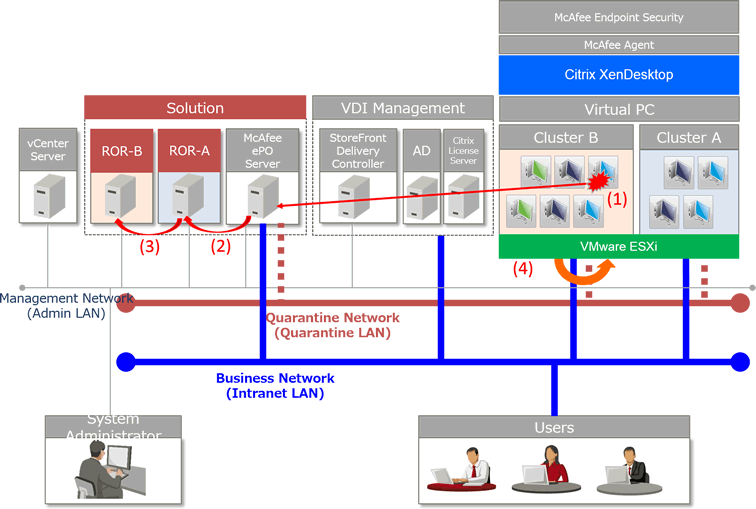The number of VMs that a single Resource Orchestrator manager can manage is limited as shown below. To manage more VMs than the limit it is necessary to use multiple managers.
| When operating in a VMware environment using Virtual Edition | 2,500 VMs |
| In all other cases | 1500 VMs |
Therefore, in configurations where there are multiple Resource Orchestrator managers, the first manager of Resource Orchestrator sends notifications/requests to the other managers (hereafter, sub managers) if necessary, and the automatic quarantining function operates in coordination.
An example of automatic quarantining from a sub manager is shown in Figure 1.11 Example of a Configuration with Multiple Managers.

(1) Notification of virus detection
(2) When a virus is detected, the first Resource Orchestrator (hereafter, the first manager) is notified using an SNMP trap
(3) As the relevant L-Server is managed by a sub manager, the relevant sub manager is notified
(4) When a virus is detected, the relevant virtual PC or SBC server is automatically quarantined by the sub manager
Note
In configurations where there are multiple Resource Orchestrator managers, perform configuration so virtual machines belonging to the same cluster are managed by the same Resource Orchestrator manager. In addition, perform configuration so L-Servers that are moved between servers using HA, etc. are still managed by the same manager.
As with a cluster, perform configuration so that tenants are also managed by the same Resource Orchestrator manager.